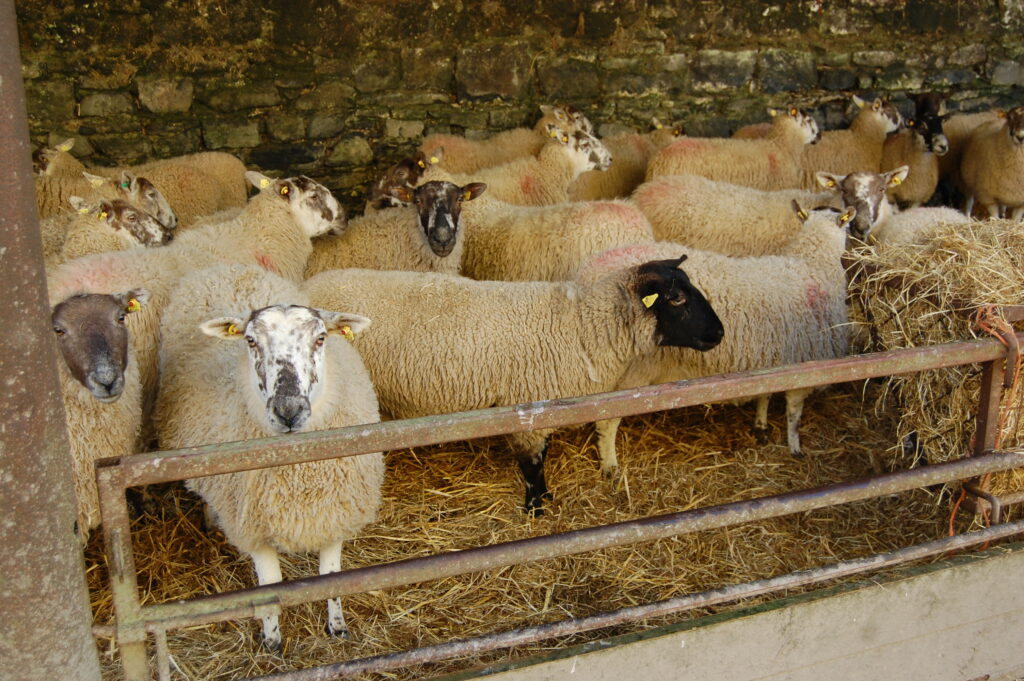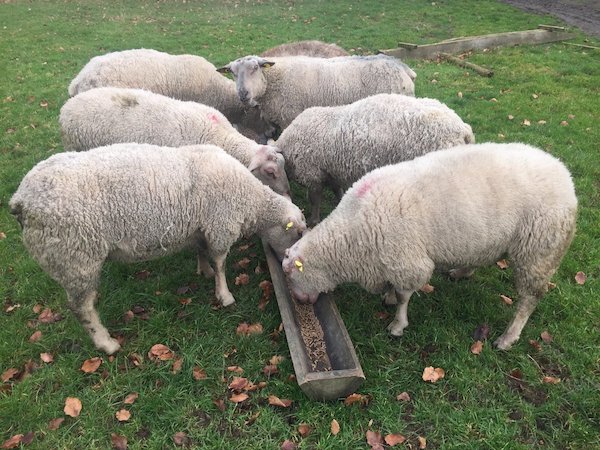The €25m Sheep Welfare Scheme, which was introduced under Budget 2017, last week closed to applications with the Department of Agriculture receiving 21,400 applications.
Lowland and hill sheep farmers could apply for the scheme – but what exactly does a farmer have to do under each of the actions under the scheme?
Sheep farmers are divided by their flock type in the scheme, with farmers having to choose an option from category A and an option from category B.
The Department of Agriculture has outlined what farmers taking part in the scheme must complete under each action:
Lameness Control
Under this option scheme participants must carry out a minimum of five lameness examinations per year, and complete the relevant section for Lameness Control in the Scheme Action Record Book.
Scheme participants must then treat all identified incidences having firstly identified the cause(s) of lameness to prevent animals becoming sick/injured as a result of lameness.
The following are the times that assessments shall be carried out:
- At least once between mating and lambing.
- May/June.
- July/Aug.
- Prior to mating (Aug –Sept/Oct).
- And at one other time which the flockowner may choose depending on the requirements of the flock.
Mineral Feed stuffs Supplementation (Ewes)
Under this action scheme participants must supplement all ewes (including hoggets out to the ram) with mineral feed stuffs post mating.
Ewes must be supplemented with suitable minerals feed stuffs for 60 days post mating.
Supplementation may take the form of bagged mineral feed stuffs (dry minerals), mineral blocks, drenches and liquid minerals, injectables or boluses.
Where boluses are used these can be administered seven to 10 days pre-mating to allow for rumen breakdown of the bolus.
Receipts and invoices of all mineral feed stuff and/or compound rations containing the mineral feed stuffs purchased must be retained and made available for inspection and/or administrative check.
All mineral feed stuffs must be sourced from feed business operators licenced by the Department of Agriculture, Food and Marine. Mineral feed stuffs must be administered in accordance with the appropriate instructions.
Flystrike Control
Under this action of the Sheep Welfare Scheme, participants must incorporate a flystrike programme for the prevention of flies during the months of flystrike risk.
They must incorporate mechanical means for the prevention of flies in addition to any chemical control used recording the times of intervention and the number of sheep with dags removed.
Faecal material can build up around a sheep’s hindquarter for a number of reasons, and can result in increased risk of fly strike and negatively impact on sheep welfare.
Sheep must be assembled at least once in the period June to September and dags should be removed from any affected sheep.
Mineral Feed stuff Supplementation (Concentrate feeding to lambs post-weaning)
Lambs must be supplemented with compound feed stuffs containing appropriate mineral and vitamins for four weeks post-weaning.
Participants may feed purchased compound feed containing minerals or supplement feed materials (‘straights’) with a suitable mineral feed stuff.
Participants will be required to retain dispatch documents for any lambs sold to verify lambs were fed for four weeks post weaning and record date of weaning.
Where groups of lambs are weaned on different dates record the different weaning dates for each group.
The level of supplementation must be at an adequate rate to provide the required level of nutrition. Participants should supplement in accordance with manufacturers label recommendations.
Mineral Feed stuff Supplementation (Lambs pre-weaning)
Under this action of the Sheep Welfare Scheme participants must supplement lambs with a mineral feed stuff during the grazing season pre-weaning which will assist in addressing mineral deficiencies in lambs on hill flocks.
Supplementation may take the form of injectables, boluses, drenches or liquid minerals. Records of all mineral feed stuffs purchased must be retained and made available for inspection.
All mineral feed stuffs must be sourced from feed business operators licenced by the Department of Agriculture, Food and Marine. Minerals must be administered in accordance with the appropriate instructions.
Parasite Control (Faecal Egg Count)
Under this action scheme participants with lowland flocks must carry out a minimum of two Faecal Egg Counts per annum on lambs to establish the worm burden in order to make an informed decision in relation to a dosing regime which will ensure treatment of internal parasites is carried out on a targeted basis.
Under this action participants with hill flocks must carry out one Faecal Egg Count on lambs for the presence of worms within four weeks post-weaning.
Further details on carrying out a Faecal Egg Count are available on the Department’s website.
Management of pregnant ewes (Scanning)
Ewes must be scanned approximately between 70 and 100 days post ram turnout. Scanning results must be recorded and the receipt and copy of scanning results from the scanner must be retained and made available for inspection or Administrative Control check.
Ewes are to be grouped and managed post scanning in accordance with litter size. Records of scanning results and treatments of ewes must be recorded in the scheme Action Record book and retained for inspection / administrative check.



